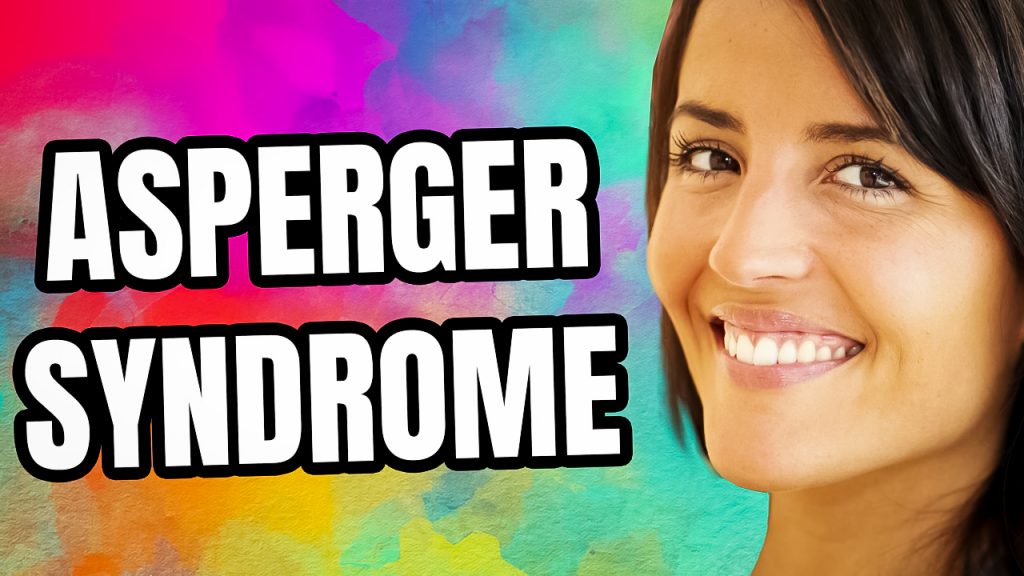
Asperger Syndrome, also known as Asperger’s, is a developmental disorder that affects an
individual’s ability to socialize, communicate, and understand nonverbal cues. It is a form of
autism spectrum disorder (ASD) and was first described by Austrian pediatrician Hans Asperger
in 1944.
One of the defining features of Asperger’s is the individual’s difficulty in understanding and
interpreting social cues, such as body language and facial expressions. This can lead to
challenges in social situations, including difficulties making and maintaining friendships and
relationships. Individuals with Asperger’s may also have difficulty with imaginative play, and they
may display repetitive behaviors or a strong adherence to routines.
Asperger’s is often diagnosed later in life than other forms of ASD, as individuals with
Asperger’s may have normal or even above-average intelligence and language skills. However,
they may struggle with more subtle social cues and may have difficulty in group settings or large
crowds.
While there is no cure for Asperger’s, there are many interventions and therapies available that
can help individuals with Asperger’s to manage their symptoms and improve their quality of life.
These may include social skills training, cognitive-behavioral therapy, and medication to manage
associated conditions such as anxiety or depression.
The diagnostic criteria for Asperger’s have evolved over time, and it is now considered a
subcategory of ASD. In the Diagnostic and Statistical Manual of Mental Disorders, Fifth Edition
(DSM-5), Asperger’s is no longer a separate diagnosis but is instead included as part of the
broader category of autism spectrum disorder.
The symptoms of Asperger’s can vary widely from person to person, but some common
characteristics include:
Difficulty with social communication: Individuals with Asperger’s may have difficulty making and maintaining friendships, participating in group activities, and engaging in small talk. They may
also struggle to understand and interpret social cues such as body language, tone of voice, and
facial expressions.
Repetitive behaviors or routines: Many individuals with Asperger’s display repetitive behaviors
or routines, such as lining up toys in a particular order or following the same schedule every day.
Limited interests: Individuals with Asperger’s may have very focused interests that they are
passionate about, and they may struggle to engage in other activities.
Sensory sensitivities: Many individuals with Asperger’s are sensitive to certain sensory stimuli,
such as loud noises, bright lights, or certain textures.
Difficulty with transitions: Individuals with Asperger’s may have difficulty with transitions and may
become upset or agitated when their routine is disrupted.
Clumsiness or poor coordination: Some individuals with Asperger’s may have difficulty with
coordination and may appear clumsy or uncoordinated.
The exact causes of Asperger’s are not known, but researchers believe that a combination of
genetic and environmental factors may play a role. Studies have suggested that there may be a
genetic component to Asperger’s, as it often runs in families. However, no specific genes have
been identified as causing Asperger’s.
Environmental factors that may contribute to the development of Asperger’s include prenatal
exposure to toxins or infections, as well as complications during pregnancy or childbirth. Some
researchers have also suggested that certain parenting styles or family dynamics may
contribute to the development of Asperger’s.
Diagnosing Asperger’s can be challenging, as the symptoms may be subtle and difficult to
recognize. However, a diagnosis is important as it can help individuals and families to access
appropriate interventions and support.
To diagnose Asperger’s, a healthcare professional will typically conduct a thorough evaluation
that may include:A developmental history: The healthcare professional may ask about the
individual’s developmental milestones, such as when they first started speaking, walking, and
interacting with others.
A physical exam: The healthcare professional may perform a physical exam to rule out other
conditions that may cause similar symptoms.
Interviews with the individual and family members: The healthcare professional may interview
the individual with Asperger’s and their family members to gather information about the
individual’s social and behavioral patterns.
Psychological testing: The healthcare professional may conduct psychological testing to assess
the individual’s cognitive and social skills.
There is no cure for Asperger’s, but there are many interventions and therapies available that
can help individuals with Asperger’s to manage their symptoms and improve their quality of life.
These may include:
Social skills training: Social skills training can help individuals with Asperger’s to learn and
practice social skills, such as initiating and maintaining conversations, interpreting social cues,
and understanding appropriate social behaviors.
Cognitive-behavioral therapy: Cognitive-behavioral therapy can help individuals with Asperger’s
to manage anxiety and stress, develop coping strategies, and improve their self-esteem.
Medication: Medication may be prescribed to manage associated conditions such as anxiety,
depression, or attention deficit hyperactivity disorder (ADHD).
Occupational therapy: Occupational therapy can help individuals with Asperger’s to develop fine
motor skills, coordination, and sensory processing skills.
Speech therapy: Speech therapy can help individuals with Asperger’s to improve their
communication skills, including speaking, listening, and understanding nonverbal cues.
Special education services: Special education services can help individuals with Asperger’s to
succeed in school by providing individualized instruction and accommodations.
In conclusion, Asperger Syndrome is a developmental disorder that affects an individual’s ability
to socialize, communicate, and understand nonverbal cues. It is a form of autism spectrum
disorder (ASD) and is now considered a subcategory of ASD in the DSM-5. Symptoms of
Asperger’s can vary widely from person to person, but some common characteristics include
difficulty with social communication, repetitive behaviors or routines, limited interests, sensory
sensitivities, difficulty with transitions, and clumsiness or poor coordination. While there is no
cure for Asperger’s, there are many interventions and therapies available that can help
individuals with Asperger’s to manage their symptoms and improve their quality of life.
This Post is Brought To You By BetterHelp